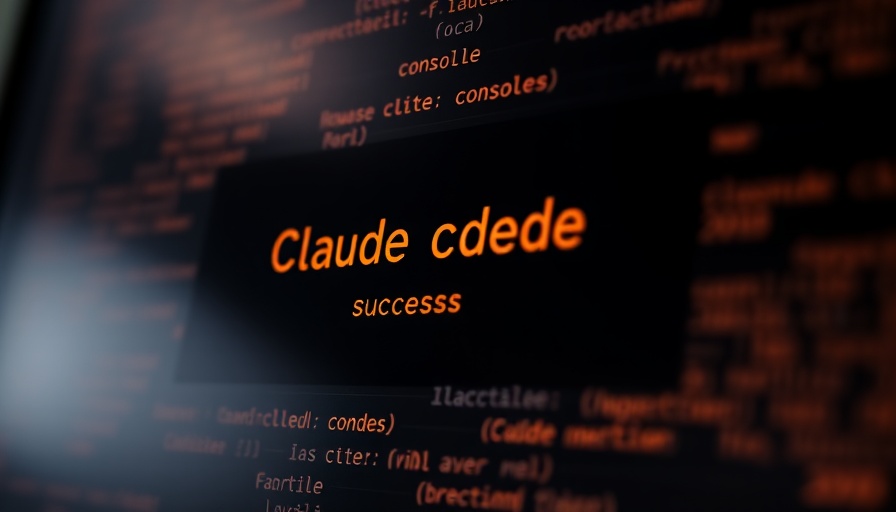
Introducing Claude 3.7 Sonnet: A Leap for AI Reasoning
In a groundbreaking move for artificial intelligence, Anthropic has unveiled its latest model, Claude 3.7 Sonnet. This hybrid reasoning model sets a new benchmark in AI capabilities, offering the remarkable flexibility of delivering both quick responses and deeper, step-by-step analyses. Designed to outperform its predecessors, Claude 3.7 embodies Anthropic's vision of a unified intelligence that can seamlessly shift between tasks, providing users with an experience akin to human reasoning.
Why Hybrid Reasoning Matters
Existing AI models such as OpenAI's o3 and DeepSeek's R1 often struggle with the trade-off between response accuracy and computational efficiency. While these models excel at breaking down complex queries, they often require more time and resources to deliver answers. In contrast, Claude 3.7’s dual capabilities allow users to choose between near-instant responses for simple inquiries and extended thought processes for more intricate topics. This flexibility makes the model adaptable to various user needs—from casual queries to detailed project planning.
New Dimensions of AI: Claude Code
Alongside the release of Claude 3.7 Sonnet, Anthropic introduced an exciting new feature: Claude Code. This agentic coding tool reshapes how developers engage with AI, effectively transforming it into a collaborative partner. capable of executing tasks such as editing files, running tests, and integrating seamlessly with platforms like GitHub. The Claude Code initiative reflects a growing trend towards integrating AI into everyday development processes, enhancing efficiency, and reducing manual workloads significantly.
The User Experience Reimagined
Simplifying the user experience is a priority for Anthropic, which is evident in their design choices for Claude 3.7. In comparison to other platforms rife with complicated model picker menus, Claude 3.7 promotes a more fluid interface that intuitively adapts to the user's requirements. Product research lead, Dianne Penn, emphasizes that reasoning should be an inherent feature of the AI, not an add-on, thus providing a smoother interaction. Developers can now dictate how quickly the model should respond, ensuring that it meets their specific demands.
Real-World Applications
The capabilities of Claude 3.7 in real-world scenarios are noteworthy. Early tests indicate exceptional performance in coding tasks, financial analyses, and creative projects. Claude has been praised not just for its speed, but particularly for its enhanced accuracy in code generation and debugging. In fact, reports from early adopters highlight how tasks that previously consumed valuable time were accomplished almost instantaneously, showing a marked improvement in workflow.
Safety and Reliability at the Core
As AI systems become more ubiquitous, ensuring their safety and reliability carries significant importance. Anthropic’s commitment to these issues is reflected in extensive testing and thorough assessments of Claude 3.7’s capabilities. The model has been fine-tuned to draw clearer distinctions between harmful requests and benign ones, minimizing unnecessary refusals and making it a more dependable tool for both users and developers.
Moving Towards a Collaborative AI Future
The advancements heralded by Claude 3.7 Sonnet and Claude Code signal a significant step towards a future in which AI can augment human capabilities — evolving beyond mere tools to become partners in innovation. Anthropic invites developers and users alike to explore these new capabilities, emphasizing the collective journey towards a more capable and intelligent AI ecosystem.
Stay tuned, AI enthusiasts! As Claude evolves, the potential to reshape our interaction with technology expands, paving the way for transformative advancements that could redefine industries and improve day-to-day operations.
 Add Row
Add Row  Add
Add 




 Add Row
Add Row  Add
Add 

Write A Comment